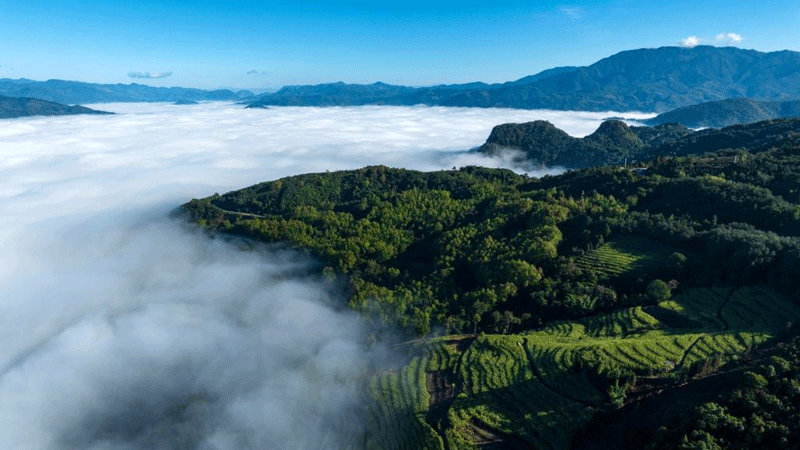Protection efforts make Tibet a paradise for wildlife, human
LHASA, Dec. 12 (Xinhua) -- Qamba begins his day at dawn, braving the biting wind on his motorcycle every day as he patrols the vast no man's land in southwest China's Tibet Autonomous Region.
Qamba, 37, is a wildlife ranger in Tsonyi County, a core area of Changtang, China's biggest and highest nature reserve.
With an average altitude of over 5,000 meters, Tsonyi is China's highest county. The oxygen level is a mere 40 percent of that on the plain.
Winter, which lasts 10 months each year, is the toughest time for Qamba as the lowest temperatures reach minus 40 degrees Celsius.
"Winter is the mating season for Tibetan antelopes. Snowfall will make it difficult for them to feed, so we have to put forage in the habitats of Tibetan antelopes to help them survive the mating period," Qamba said
In 1993, the Changtang Nature Reserve was established in Tibet and upgraded to a national nature reserve in 2000, covering an area of nearly 300,000 square km.
The population of rare wildlife species in Tibet has been growing, with the Tibetan antelope population increasing to over 300,000, wild yaks exceeding 20,000 and black-necked cranes surpassing 10,000, according to a report released in June by the regional department of ecology and environment.
Humans as well as animals benefit from Tibet's pristine natural setting. In the city of Nyingchi, a major forest area in China, logging used to be the main source of income for the locals. However, after a ban was imposed on logging people turned to ecotourism for income.
Sonam Drolkar, who opened the first homestay in her village in Gongbo Gyamda County, expanded her homestay in 2010 with the support of the local government. Today, she is the proud owner of two homestays.
"As the environment improves, a rising number of tourists visit this place and our revenue has soared," said the 32-year-old Sonam Drolkar, adding that her homestay business alone brought her more than 100,000 yuan (14,375 U.S. dollars) last year.
Rural tourism in Tibet attracted more than 12.7 million tourists last year, generating about 1.6 billion yuan of revenue and creating 64,500 jobs for farmers and herders, said Dondrup, deputy head of the regional tourism development department.
By the end of 2019, the autonomous region had eradicated absolute poverty.
"The ecological benefits are being transformed into economic and social benefits, and the sound eco-environment has become a road to fortune for the locals," said Shui Yanping, deputy director of the regional department of ecology and environment.
Photos
Related Stories
- Tibet rolls out measures to cultivate, attract talents
- Cookware stews change of life in Tibet
- Commodity fair witnesses consumption upgrade in Tibet
- Snow leopard cub released into wild in Tibet
- Stores in Lhasa reopen after COVID pandemic under control
- Feature: Love on the plateau mirrors ethnic unity in Tibet
Copyright © 2022 People's Daily Online. All Rights Reserved.









